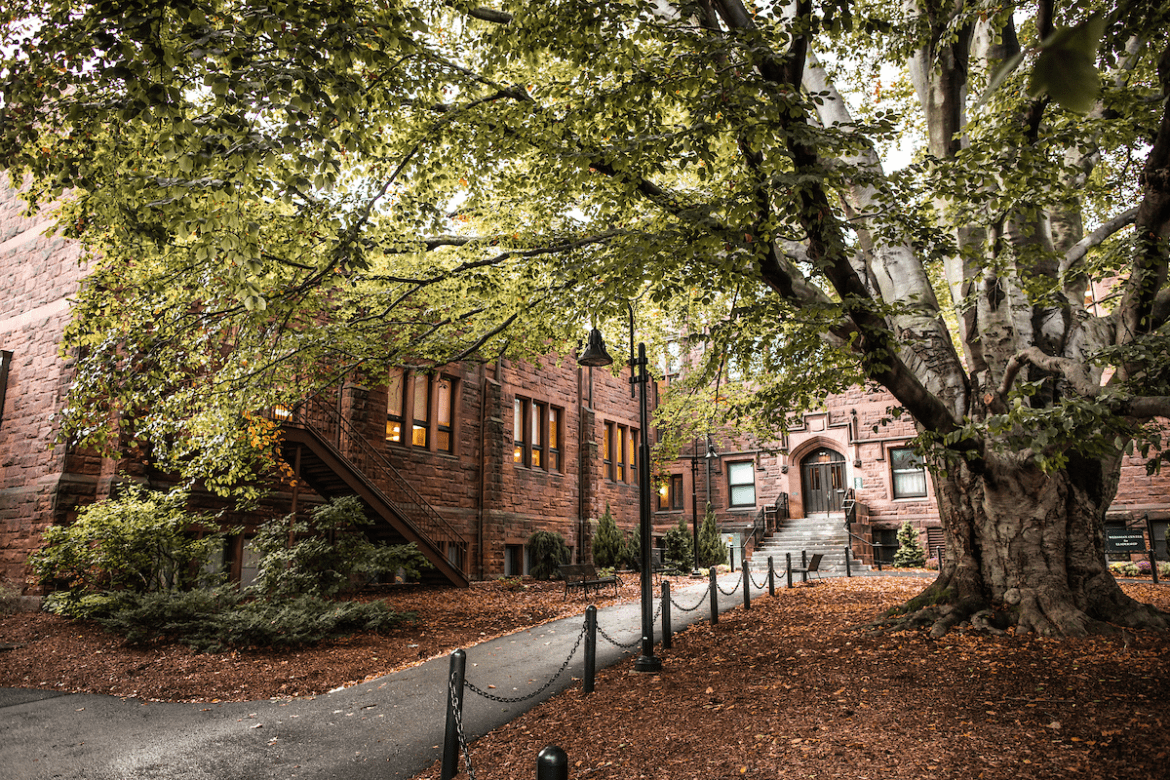Florida Council of Teachers of Mathematics (FCTM) Conference Recap

Naomi Dupre-Edelman, assistant director of the math leadership programs at Mount Holyoke College shares what she learned from alum and faculty at the recent math conference.
Marria Carrington, director of the math leadership programs at Mount Holyoke College, and I were fortunate to attend the Florida Council of Teachers of Mathematics (FCTM) Annual Conference this week in Orlando, Florida. There, we had the opportunity to connect with some of our Florida-based alums, including Carrie DeNote ’20, Montana Lowe ’23 and Karina Moran ’22. Following are some of the highlights from the conference.
Karina Moran, a graduate of our Master of Arts in Teaching Mathematics program, is a math coach in Palm Beach County. Her presentation “Vocabulary or Experience: The Geometry Conundrum” enabled participants to gain a deeper understanding of how important hands-on tasks are for students as they learn geometry. Connecting her workshop back to the Florida B.E.S.T. Standards for Mathematics, Karina allowed teachers the opportunity to do the math themselves and discuss the impact of the math on learning.
TJ Jemison works as a facilitator for the Developing Mathematical Ideas courses at Mount Holyoke. This year in Florida, his marathon of presentations around coaching included advice on how we can leverage the power of stories in the classroom to engage students of all identities. In his session “Coaching for Tough Talks: Facilitating Challenging Conversations,” he offered advice to coaches on how to work through challenging situations and conversations. In “Don’t Be a Coach Blocker! Strategic Coaching Advocacy—Aligning Administration with Your Objective,” he teamed up with Laura Tomas to provide insights to coaches and administrators. Laura is a math coach in Palm Beach County and hosts a weekly podcast, called Learning Through Math, with her friend and fifth grade teacher Karina Cousins (do check it out). TJ’s final presentation, “Math for All: Embracing Diversity Through Mirrors, Windows and Sliding Glass Doors,” demonstrated how teachers can tap into children’s literature to engage students during math class. As a co-author of “Math By the Book,” TJ shared ways to embrace all learners during math class.
I gave two presentations at the conference, kicking off Day One with “Rethinking Rounding: From Rhymes to Reasoning with Conceptual Place Value.” In this session, I encouraged teachers to think beyond mnemonics and rhymes, and utilize prior knowledge about conceptual place value to support and embed ideas about rounding. My second presentation, “Bridging the Gap Between Math and Literacy: Best Practices in Foundational Learning,” allowed teachers to connect ideas about early literacy and numeracy and explore learning routines rooted in cognitive science. This approach helps K-2 students engage in these skills and simplifies the planning process for teachers.
Marria’s session, “Early Numeracy is Critical: Make an Impact!,” explored the key ideas in K-2 mathematics according to the Florida B.E.S.T. Standards for Mathematics. By analyzing videos of student thinking and unpacking addition and subtraction situations, participants left with new ideas for engaging their students in place value, addition and subtraction and counting. If you are planning to attend the National Council for Supervisors of Mathematics (NCSM) this year, you can catch another run of this presentation from Marria.
Marria attended Dr. Douglas Clements’ session “The Surprising Importance of Early Math,” which shared important research about the impact of learning from birth to Grade 3. His website Learning Trajectories is full of videos and free instructional resources.
I also attended Juli K. Dixon’s presentation “Six (Un)Productive Practices in Mathematics Teaching,” where she shared strategies to support teachers experiencing common unproductive practices in the classroom. I was most impacted when Juli said, “Elicit student errors through questions. The questions I ask help elicit student errors so we can talk about them.” As classroom teachers, we are constantly avoiding or correcting student errors. Her insights now have us wondering how we can change the narrative and use errors to help us think deeper about the math involved.
We also met and talked with many other wonderful mathematicians, teachers, coaches and presenters, including Howie Hua, Jenny Bay-Williams, Dr. India White and Dr. Kristopher J. Childs. We highly recommend the FCTM Annual Conference and encourage you to check out some of the presenters highlighted here.